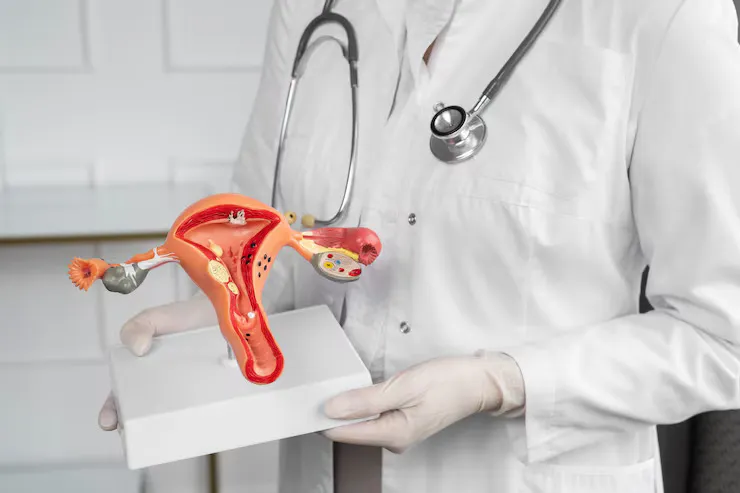
Understanding Female Urology: Addressing Unique Urological Needs
When it comes to urological health, women often face unique challenges that differ from those of men. Female urology is a specialized field focused on diagnosing and treating urological conditions that specifically affect women. These conditions can significantly impact quality of life, and addressing them with proper medical care is essential for overall well-being.
In this blog, we’ll explore the key aspects of female urology, common conditions women may face, and how specialized care can make a difference.
-
What is Female Urology?
Female urology is a subspecialty of urology that focuses on the diagnosis, treatment, and management of urological conditions that affect the female urinary tract and reproductive organs. These conditions often overlap with gynecology, which is why many urologists specializing in female urology work closely with gynecologists to provide comprehensive care.
-
Common Urological Conditions in Women
Women are prone to several urological conditions, many of which can be managed effectively with early diagnosis and proper treatment. Here are some of the most common issues :
- Urinary Tract Infections (UTIs) : UTIs are one of the most common urological conditions affecting women. Women are more susceptible to UTIs due to their anatomy, as the urethra is shorter and located closer to the rectum, making it easier for bacteria to enter the urinary tract. Symptoms include frequent urination, burning during urination, and lower abdominal pain. While UTIs are typically treated with antibiotics, recurrent infections may require further evaluation by a urologist.
- Overactive Bladder (OAB) : Overactive bladder is characterized by a sudden, uncontrollable urge to urinate, often leading to frequent trips to the bathroom and, in some cases, urinary incontinence. This condition can significantly impact daily life and may be caused by various factors, including age, hormonal changes, and pelvic floor issues. Treatment options range from lifestyle modifications and pelvic floor exercises to medications and, in some cases, minimally invasive procedures.
- Urinary Incontinence : Urinary incontinence is the involuntary leakage of urine, a condition that affects many women, especially after childbirth or during menopause. There are different types of incontinence, including stress incontinence (leakage during activities like coughing, sneezing, or exercising) and urge incontinence (a sudden and intense need to urinate). Treatment options vary depending on the type and severity of incontinence and may include pelvic floor therapy, medications, or surgery.
- Pelvic Organ Prolapse : Pelvic organ prolapse occurs when the muscles and tissues supporting the pelvic organs (bladder, uterus, rectum) weaken, causing one or more organs to drop or press into the vaginal wall. This condition is common in women who have had multiple pregnancies, undergone menopause, or experienced significant weight fluctuations. Symptoms may include a feeling of pressure or fullness in the pelvic area, difficulty urinating, or urinary incontinence. Treatment options include lifestyle changes, pelvic floor exercises, or surgical repair.
- Interstitial Cystitis (Painful Bladder Syndrome) : Interstitial cystitis (IC) is a chronic condition that causes bladder pressure, pain, and frequent urination. Unlike UTIs, IC is not caused by an infection and does not respond to antibiotics. The exact cause of IC is unknown, and it can be challenging to treat. However, various therapies, including medications, dietary changes, bladder instillations, and physical therapy, can help manage symptoms and improve quality of life.
- Urethral Syndrome : Urethral syndrome involves chronic urethral pain, burning, and irritation without a clear infection. This condition can be frustrating to diagnose and treat, but a urologist specializing in female care can help determine the underlying cause and develop a treatment plan that may include medications, lifestyle changes, and pelvic floor therapy.
-
Why Specialized Care Matters
Women’s urological needs differ from men’s, and a urologist specializing in female urology understands these differences. Specialized care ensures that women receive accurate diagnoses and appropriate treatments tailored to their specific conditions.
Female urology takes into account factors such as hormonal changes, pregnancy, childbirth, and menopause, all of which can impact the urinary system. Additionally, a urologist with expertise in female urology is skilled in performing minimally invasive procedures that reduce recovery time and discomfort, helping women return to their normal lives more quickly.
-
Maintaining Urological Health
While some urological conditions may be unavoidable, there are steps women can take to maintain good urological health :
- Stay Hydrated : Drinking plenty of water helps flush out bacteria and prevent urinary tract infections.
- Practice Good Hygiene : Wiping from front to back and emptying the bladder after intercourse can reduce the risk of UTIs.
- Exercise the Pelvic Floor : Regular pelvic floor exercises (Kegels) can strengthen the muscles that support the bladder and help prevent incontinence.
- Avoid Bladder Irritants : Certain foods and drinks, such as caffeine, alcohol, and spicy foods, can irritate the bladder and exacerbate conditions like OAB.
- Regular Check-ups : Regular visits to your healthcare provider, especially after childbirth or during menopause, can help detect and address any urological issues early on.
Conclusion
Female urology is an essential aspect of women’s health, addressing unique challenges that can significantly impact daily life. Whether you’re dealing with recurrent UTIs, incontinence, or pelvic organ prolapse, specialized urological care can provide relief and improve your quality of life. If you’re experiencing any urological symptoms, don’t hesitate to consult with a urologist who specializes in female care. Your health and well-being deserve the best possible attention.
